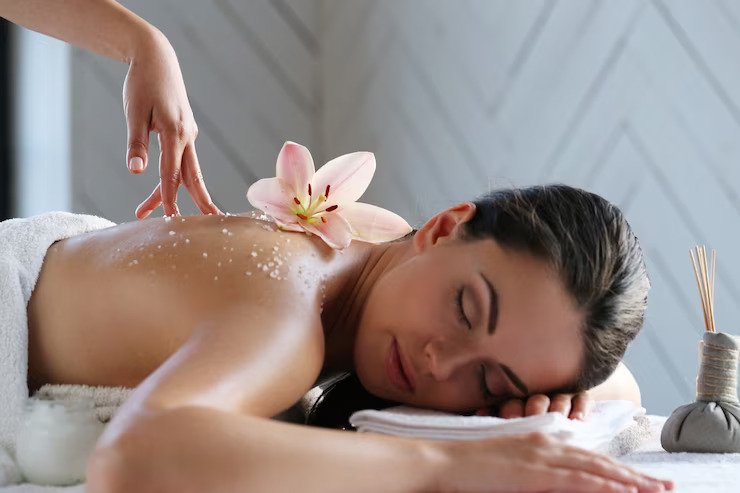The aromatherapy market could reach $4.7 billion by 2030, growing at a CAGR of 11.9% between 2023 and 230. More people are becoming aware of the potential aromatherapy benefits they can experience with essential oils. Before you purchase an essential oil diffuser, however, read this guide.
With this guide, you can determine the types of essential oils to purchase based on your goals. Read on to discover the benefits you could experience today!
What Is Aromatherapy?
Before we dive into different essential oils and their potential health benefits, let’s cover the basics. What is aromatherapy?
Aromatherapy is a holistic treatment option that relies on natural plant extracts. Using essential oils could promote better health. Aromatherapy is also called essential oil therapy.
You can use a range of different essential oils (which produce different scents) to improve your mind, body, and spirit. Using essential oils could improve your emotional and physical health.
This practice is considered an art, science, and form of medicine.
Ancient cultures have relied on aromatherapy for thousands of years. It’s common in Egypt, India, and China. Practitioners convert aromatic plant components into balms, soils, and resins.
How Does It Work?
You can start experiencing aromatherapy benefits using:
- Facial steamers
- Aromatic spritzers
- Diffusers
- Inhalers
- Body creams, oils, and lotions
- Hot and cold compresses
- Clay masks
- Bathing salts
After trying a few of these methods for the first time, you can determine which option suits your preference. Many people use diffusers.
There are nearly a hundred different essential oils you can consider using. The benefits of essential oils you might experience will vary based on the type you use.
Potential Benefits
Remember, the benefits you experience will vary based on the scent.
Here are a few potential benefits you might experience after turning to aromatherapy:
- Improved digestion
- Improved sleep quality
- Pain management
- Improved hospice/palliative care
- Improved immunity
- Headache and migraine treatment
- Reduced stress and anxiety
- Alleviated chemotherapy side effects
Aromatherapy might also help treat specific conditions.
A few include:
- Depression
- Arthritis
- Menopause
- Insomnia
- Fatigue
- Inflammation
- Alopecia
- Menstrual issues
- Cancer
- Erectile dysfunction
There are also unproven claims that aromatherapy might help treat heart disease, Parkinson’s disease, and Alzheimer’s disease. However, we need more research to fully determine potential health benefits.

Here are a few different scents and their potential health benefits.
1. Peppermint
Peppermint essential oils are best used for headaches, GI, and IBS conditions. You might find it refreshing, cooling, and energizing compared to other essential oils. It has a peppermint-candy-like scent with a grass-like undertone.
Peppermint is a hybrid mint. It’s considered a mix between watermint and spearmint.
Most research is focused on peppermint oil’s benefits on IBS symptoms. It could relieve symptoms like diarrhea, constipation, and abdominal pain. It’s possible peppermint oil works by smoothing the muscles of the GI tract.
It could also have an anti-inflammatory effect to relieve pain symptoms.
Potential health benefits also include:
- Relief from itches
- Muscle pain relief
- Nausea relief
Some practitioners say peppermint oil benefits their athletic performance.
However, peppermint essential oil isn’t safe if you’re taking certain medications or have a G6PD deficiency.
2. Lavender
Lavender essential oils are used for their therapeutic and medicinal benefits. For example, lavender could help induce sleep if you’re struggling with insomnia. Insomnia can keep you tossing and turning at night.
Without proper sleep, you could struggle to function throughout the day. Consider adding a few drops of lavender essential oil to your pillow before bed.
Lavender might also help treat skin blemishes. Use carrier oil and lavender if you have eczema, skin inflammation, or acne. Lavender might ease the inflammation.
Its antioxidant properties might contribute to wound healing, too.
Other benefits of lavender oil include its pain relief, asthma symptom relief, and hair growth-promoting effects.
3. Tea Tree Oil
Tea tree oil is best known for its antibacterial properties. It could help people with athlete’s foot, dandruff, or head lice as well.
Its antibacterial and antifungal properties make it ideal as an added ingredient in shampoos.
4. Bergamot
Bergamot essential oils could help reduce inflammation, which makes it ideal for pain relief. It could help relieve stress as well.
Bergamot is made from the rinds of Citrus bergamia fruits (a hybrid of lemons and oranges). It has a sweet, bright citrus scent.
Many people find bergamot oil causes skin irritations, however. Make sure to dilute it using a carrier oil. It could make your skin photosensitive, too.
5. Chamomile
Chamomile is best used for anxiety relief. It might also help relieve digestive issues, including indigestion, gas, and nausea.
Its comforting scent could help you sleep, too. In fact, chamomile might increase morning levels of the hormone cortisol. Cortisol is connected to anxiety disorders.
6. Jasmine
Jasmine essential oils offer an aphrodisiac effect. It has a sweet scent.
Jasmine is sometimes used for its antidepressant effects. It could increase behavior arousal while increasing your:
- Blood oxygen saturation
- Breathing rate
- Blood pressure
It might even help you feel more alert. Jasmine could boost your mood. Some people feel more energetic, positive, and even romantic after inhaling jasmine oil.
Before purchasing an essential oil diffuser, consider the AroMini BT’s unique nebulizing technology. This diffuser achieves long-lasting scents while allowing you to control to fragrance’s intensity. You can explore scents that feature bergamot, jasmine, and lavender.
You can see more aroma tech scents here.
Potential Side Effects
It’s safe to use most essential oils. However, there are some precautions you should consider before you begin using essential oils for the first time.
For example, you should avoid applying essential oils directly onto your skin. Instead, dilute the oil using carrier oils. For example, coconut oil, jojoba oil, or avocado oil. You can also use a skin patch test to determine if you’re sensitive to certain types or brands.
Potential side effects can include:
- Skin irritation
- Nausea
- Rashes
- Headaches
- Asthma attacks
- Allergic reactions
If you experience side effects, consider visiting a doctor right away.
Explore the Potential Aromatherapy Benefits Today
Want to experience these aromatherapy benefits? Consider purchasing your own essential oil diffuser. Choose a few different scents to see which fragrances work best for you.
Rest and relax with the help of your favorite essential oils today.
Need help from another guide? We have plenty.
Check out our latest articles today!
Read Also:




























